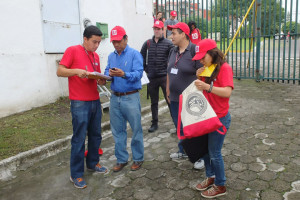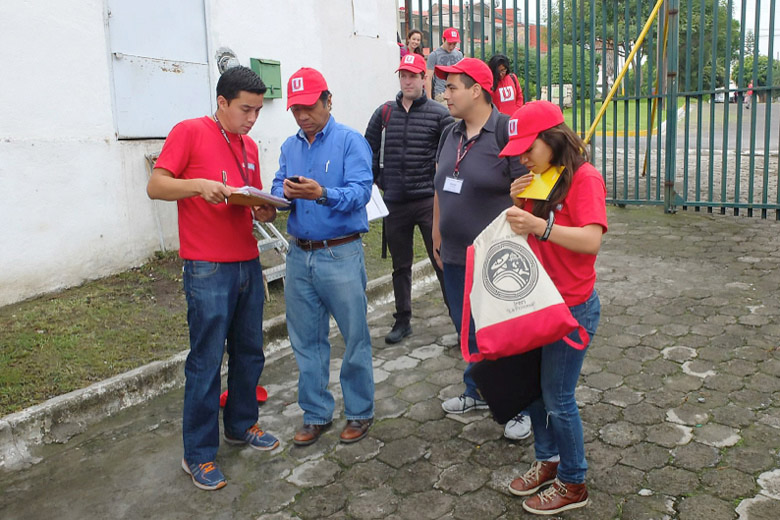
A new pilot program aims to take students out of the classroom and into the field. After taking ECON 121: Social Science Field Research Methods and Applications in the spring, students spent three weeks in Puebla, Mexico to conduct field research on whether providing information on a household’s electricity bill and simple methods to reduce energy consumption would lead to a decreased energy bill for a house.
This course is a pilot collaboration between the Program on Energy and Sustainable Development, the Freeman Spogli Institute for International Studies and the Office of International Affairs.
During the students’ stay in Puebla, they, alongside students from the Universidad Popular Autónoma del Estado de Puebla, spent eight to 10 hours a day conducting interviews and surveying households. At their most efficient, the students would do as much as 44 surveys in one day, culminating in 260 surveys completed in 10 days of field work. Currently, three students are working as research assistants to create a self-administered online version of the survey instrument that that they hope will help thousands of households in Puebla.
Getting students out into the field and applying their knowledge is the driving force behind the program, according to Frank Wolak, who taught the class and is professor of economics.
“While students at Stanford have many opportunities to pursue independent research projects, they rarely have the opportunity to receive first-hand training in conducting interviews, research design and field implementation,” said Wolak in an interview with the Stanford Report. “With that in mind, we set out to design a program that would carry the students through the basics of empirical research and then give them the opportunity to apply that knowledge under close faculty supervision. Taking students out of the classroom and giving them the opportunity to see textbook methods in action is invaluable.”
During the class in spring, students learning the basics of design, implementation and interpretation of field research in the social sciences. Though a knowledge of statistical methods, economics and research practices is required, the class paid significant attention to differentiating what can be learned in the class and what can only be learned out in the field.
While students might have come to the course with some ideas about this, once they were onsite and had a greater understanding of how local residents actually lived, empirical data changed how they made recommendations.
“There are a variety of situation-specific problems that are hard for any researcher to know fully without being immersed in the field,” Wolak said. “For example, one of the students’ recommendations to improve energy efficiency was to switch household light bulbs from incandescent to compact fluorescents (CFL). This is a valid recommendation in the United States, where most people still use incandescent bulbs in their homes, but — surprisingly to the team — most of the people interviewed had already converted to all CFLs in their home.”
Wolak noted that the pilot program “exceeded [his] expectations in the best possible ways” and hopes to bring the program to other parts of Latin America, such as Chile or Colombia.
“Our hope is that this training equips the students with the academic and logistical skills they need to execute their own robust research, be that for an honors thesis, a capstone project or an advanced degree,” he said.
Contact Jeremy Quach at jquach ‘at’ stanford.edu.
